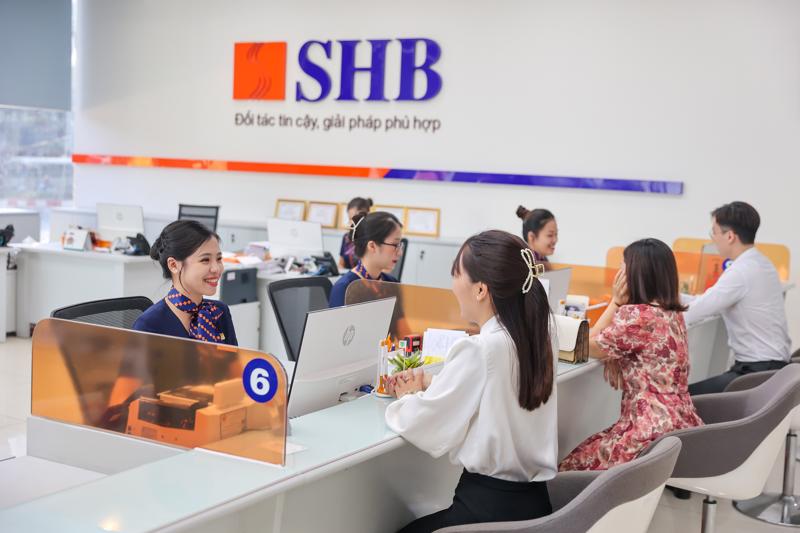The State Bank of Vietnam (SBV) issued Document No. 4629/NHNN-TTGSNH on June 15 granting approval to SHB to increase its charter capital to VND5.97 trillion ($254.47 million) according to the charter capital increase plan approved by a general meeting of shareholders, in two forms: issuing shares to pay dividends in 2022 to existing shareholders at a rate of 18 per cent from after-tax profit after setting aside funds in 2022, and issuing shares under the Employee Stock Ownership Plan (ESOP).
After implementing the two options, charter capital will increase from VND30.67 trillion ($1.3 billion) to VND36.64 trillion ($1.56 billion), maintaining the bank’s position in the Top 5 private commercial joint stock banks with the largest charter capital.
During its operations, SHB has developed safely, openly, and transparently, posting sustainable growth and steadily increasing its charter capital over the years. Its safety, liquidity, and risk management indexes are all better than SBV and international standards.
It also ensures the interests of shareholders through regular dividend payments of 7-15 per cent a year and 18 per cent in 2022. The increase in charter capital is important to improve the bank’s financial capacity, increase its competitiveness in the process of international economic integration, and meet the interests of shareholders.
Issuing shares in the ESOP is a policy SHB pays particular attention to in order to create a link between the bank and its employees and at the same time encourage and attract talent, improve working efficiency, and drive SHB to accomplish future development goals and strategies.
This year it aims to increase pre-tax profit by 9.67 per cent to VND10.6 trillion ($451.81 million), total assets by 10.09 per cent, capital mobilization by 14.78 per cent, and the credit balance by 14 per cent. The dividend is expected to be 15 per cent and therefore charter capital is expected to reach over VND40 trillion ($1.7 billion).
As of the end of the first quarter of 2023, total assets stood at VND570.19 trillion ($24.29 billion), capital mobilization VND440.35 trillion ($18.76 billion), and the credit balance VND422.17 trillion ($17.97 billion). Total operating income (TOI) reached VND6.2 trillion ($263.84 million), up 32.2 per cent year-on-year, and net profit VND4.99 trillion ($212.13 million), up 35 per cent year-on-year, therefore putting SHB among the group of banks with the highest net profit growth in the quarter. With these results, despite actively making provision for risks of nearly three times higher year-on-year, SHB still posted pre-tax profit of VND3.62 trillion ($154.02 million).
With efficient business and safe and sustainable development, SHB increasingly asserts its prestige and position in the international market. According to the latest credit rating update, international credit rating agency Moody’s maintained a “B1” rating for SHB as the global market has been characterized by wide fluctuations and huge challenges in 2022 and early 2023. “The affirmation of SHB’s B1 rating and b2 BCA reflects Moody’s expectation that the bank’s credit profile will remain stable over the next 12 to 18 months,” Moody’s wrote. “The b2 BCA also considers the bank’s capital and liquidity.”
SHB also recently completed the transfer of 50 per cent of SHB Finance’s charter capital to Krungsri, a bank partner from Thailand, under a process divesting 100 per cent of capital per a previously signed deal. In the next three years, SHB will transfer the remaining 50 per cent to Krungsri per the agreement.
The transaction will bring a significant surplus for SHB shareholders, creating more resources for the bank to continue to strengthen its financial capacity and fundamental factors, thereby promoting business activities in key segments and especially promoting further investment in the digital transformation process. The surplus from the deal will also help SHB strengthen its capital buffer, one of the bases to accelerate the roadmap to deploy Basel III standards and apply International Financial Reporting Standards (IFRS) in 2023.
Along with that, many major financial institutions such as the World Bank (WB), the Asian Development Bank (ADB), the International Finance Corporation (IFC), and Kreditanstalt für Wiederaufbau (KfW) Bank, etc., have promoted cooperation with SHB through significant grants and investments.
Most recently, SHB and the IFC signed a cooperation agreement for a Premium Loan. The two sides signed the first loan in a total loan package of $120 million from IFC’s direct capital with a term of three years. The loan is intended to assist SHB in developing its small and medium-sized enterprise (SME) loan portfolio, which includes women-owned businesses and those involved in supply chains.
The fact that the IFC and many international financial institutions have accompanied SHB in recent years continues to affirm its prestige and capacity in the international financial market and at the same time confirms it has adopted the correct strategy in safe and strong development, building a solid foundation and buffer and helping its grow stably and sustainably, fully and comprehensively meet safety standards and comply with international standards.
With increasingly strong financial capacity, SHB has been promoting investment in information technology as well as improving its management and operating capacity, constantly expanding its network and scale to become the No. 1 bank in terms of efficiency, the most modern retail bank, and the favorite digital bank in Vietnam.









 Google translate
Google translate